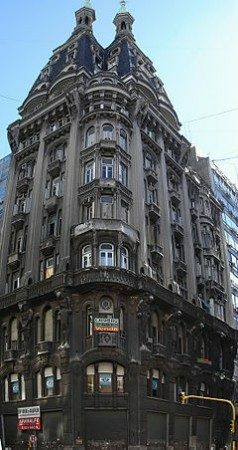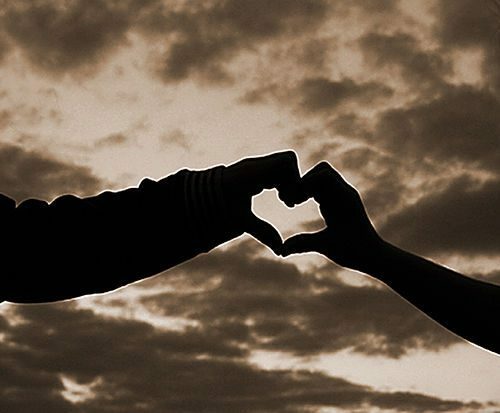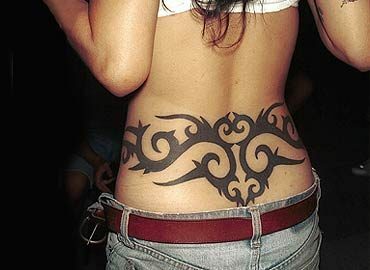Journalistic Interview Example
Drafting / / August 29, 2023
The journalistic interview it's a dialogue between the journalist and one or more people with the aim of obtaining relevant and truthful information for a publication or broadcast. Through this dialogue, the journalist seeks to discover, confirm or understand facts, opinions, testimonies and points of view on a specific topic.
In this article you will learn about the different types of journalistic interviews and examples of each one. Let's start!
Article content
- • Types of Interviews
- • Informational Interview
- • Opinion Interview
- • Profile Interview
- • Informational Interview Example
- • Sample Opinion Interview
- • Profile Interview Example
Types of Interviews
understand the types of interviews It is fundamental to journalism. Each type has its purpose and depending on what you are looking for, it is essential to choose the right one. Thus, we not only capture the public's attention, but also ensure that our information is relevant and purposeful.
Informational Interview
This is perhaps the most common. Your goal is simple:
collect data and facts. When an event of public interest occurs, such as an accident or a government decision, this interview comes to the rescue. Here, precision is key.- Main goal: Present facts to the public.
- Outstanding Feature: They are usually brief and to the point.
- Example: A mayor talking about a new transportation policy.
Opinion Interview
Here we enter the world of points of view. What does a person or an expert think about a particular topic? These interviews seek answers to these concerns, and are usually more subjective than informative.
- Main goal: Understand the interviewee's point of view.
- Outstanding Feature: Answers are more subjective.
- Example: An economist opining on the impact of a new tax law.
Profile Interview
Human beings are curious by nature, and this is where the profile interview shines. His goal is to present a person in all his complexity. Whether he is an artist, a scientist or any individual of interest, this interview seeks to delve into his life and work.
- Main goal: Introduce a person in detail.
- Outstanding Feature: They are more extensive and detailed.
- Example: An actress talking about her career and her personal challenges.
Informational Interview Example
Issue: Implementation of the new urban recycling system.
Participants:
Journalist (P): Alexander Ruiz.
Interviewee (E): dr. Laura Benítez, Director of the City's Department of Environmental Management.
P: Good afternoon, Dr. Benitez. Thanks for your time. We would like you to inform us about the new urban recycling system that the city plans to implement.
AND: Good afternoon, Alexander. It's a pleasure. I am here to clarify all doubts about this new initiative.
P: Let's start with the basics. What motivated the city to review and change the current recycling system?
AND: The previous system, although functional, had areas for improvement. In addition, with the increase in population, we need a more efficient and sustainable method.
P: What is the main objective of this new system?
AND: Our goal is to increase the recycling rate by 50% for the next year and reduce the amount of waste going to landfills.
P: What does this new system consist of?
AND: It is based on three pillars: differentiated collection, more efficient recycling centers and citizen education on recycling.
P: Let's talk about differentiated collection. How will it work?
AND: Waste must be separated at source, that is, at home, into organic, plastic, paper and glass. Then, they will have specific collection days.
P: How will you ensure that people comply with this separation?
AND: We are launching an educational campaign and there will be sanctions for those who do not comply, although the idea is to encourage more than sanction.
P: He was talking about more efficient recycling centers. What improvements have been implemented?
AND: We have acquired modern machinery that allows faster processing of materials and, in addition, we have expanded our facilities.
P: And what about citizen education?
AND: We are working with schools and organizations to provide workshops and talks. The idea is to create awareness from childhood.
P: When is this system expected to be operational?
AND: The first phase launches next month and we hope to have everything up and running in six months.
P: What can citizens do to collaborate in this process?
AND: The most important thing is to find out and follow the separation guidelines. Also, participate in our workshops and spread the information.
P: Will there be specific places to deposit hazardous or electronic waste?
AND: Yes, we are establishing specialized centers for this type of waste, thus avoiding contamination.
P: What long-term benefits does the city expect from this initiative?
AND: In addition to a cleaner environment, we hope to reduce waste management costs and encourage job creation in the recycling sector.
P: How will this project be financed?
AND: Through municipal funds, state subsidies and collaborations with private companies interested in sustainable management.
P: To conclude, Dr. Benítez, do you have any message for the citizens about this project?
AND: Yes, I would like to remind you that recycling is everyone's responsibility. This new system is a tool, but its success depends on the collaboration of each one of us.
P: Thank you, Dr. Benítez, for clarifying our doubts about this important project.
AND: Thank you for giving voice to this initiative. Together we will make our city a cleaner and more sustainable place.
Sample Opinion Interview
Issue: Impact of online education on educational quality.
Participants:
Journalist (P): Mauricio Soto.
Interviewee (E): Dr. Elena Fernández, expert in pedagogy and educational technology.
P: Good afternoon, Dr. Fernández. Thanks for joining us today. Given his experience, we would like to know your opinion about online education and its impact on educational quality.
AND: Good afternoon, Mauricio. I appreciate the invitation. It is a topic that has undoubtedly taken on relevance in recent times.
P: Exactly. Do you think that online education has improved or decreased educational quality?
AND: It is not a question with a simple answer. Online education has the potential to improve educational quality, but it all depends on how it is implemented.
P: Interesting. Could you explain a bit more about that?
AND: Clear. Technology offers us powerful tools to personalize learning, reach remote areas, offer multimedia resources, among others. But if it is not implemented with a solid pedagogical strategy, it can backfire.
P: What challenges do you see in online education?
AND: One of the biggest challenges is the lack of direct social interaction. Also the self-discipline required by the student, and the adequate training of teachers.
P: In your opinion, do you think that online education can completely replace face-to-face?
AND: I don't see it as a replacement, but as a complement. There are aspects of face-to-face education, such as direct interaction, that are irreplaceable. However, the online modality can enrich and expand educational opportunities.
P: Some argue that online education favors inequality, since not everyone has access to technology. What do you think about it?
AND: It's a valid concern. Although technology has become more accessible, there are still areas and communities with limited access. Institutions and governments must work to guarantee this access so as not to create educational gaps.
P: What advice would you give to teachers facing the challenge of teaching online?
AND: That they constantly seek training and that they focus on the human aspect. Technology is a tool, but the heart of education remains the relationship between teacher and student.
P: Dr. Fernández, to conclude, do you think that, with the right adaptation, online education has a permanent place in the future of education?
AND: Absolutely. Online education is here to stay. But as a society, we must ensure that it is implemented in a way that maximizes its benefits and minimizes its challenges.
P: Thank you, Dr. Fernández, for sharing your opinion and knowledge on this highly relevant topic.
AND: It has been a pleasure, Mauricio. Thank you for opening the debate on these important educational issues.
Profile Interview Example
Issue: Trajectory and life of the famous international chef, Adrián Torres.
Participants:
Journalist (P): Carolina Lopez.
Interviewee (E): Adrián Torres, renowned chef with Michelin stars and owner of the restaurant "Mar y Tierra".
P: Good morning, Adrian. It is an honor to have this conversation with you. Your name is synonymous with excellence in gastronomy. To begin, how did you start in the world of cooking?
AND: Hello Caroline! The pleasure is mine. Well, my love for cooking started at a very young age. My grandmother had a small restaurant in town, and there I fell in love with the aromas and flavors.
P: Do you remember the first dish you prepared?
AND: Clear! It was a Spanish omelette under the supervision of my grandmother. Although she was a little burned (laughs).
P: Your restaurant "Mar y Tierra" has been internationally acclaimed. What inspired its creation?
AND: I wanted to reflect my roots, the love for the sea in my hometown and the passion for the terrestrial ingredients of the mountains where I grew up.
P: How do you define your culinary style?
AND: It is a fusion of traditional techniques with a modern twist. Always respecting the essence of the ingredient.
P: Throughout your career, was there a mentor or figure who marked your career?
AND: Without a doubt, chef Ramiro Herrera. I worked with him in Paris and he taught me to see cooking as an art and not just a trade.
P: Speaking of art, many consider your dishes to be works of art. How important is the presentation to you?
AND: Food enters first through the eyes. The presentation is essential, but always maintaining the flavor as the protagonist.
P: You have traveled the world. Is there a culture or country that has particularly influenced your cooking?
AND: Japan, without hesitation. His respect for the ingredient and the simplicity of his preparations made a profound impact on me.
P: Outside of cooking, what are you passionate about?
AND: Music. If I hadn't been a chef, I'd probably be a musician. I play the guitar in my spare time.
P: Any dishes that still challenge you?
AND: The paella. Although it seems simple, achieving the perfect balance is quite an art.
P: Finally, Adrián, what advice would you give to young chefs who aspire to follow in your footsteps?
AND: That they cook with passion, that they never stop learning and that they are not afraid of making mistakes. In the kitchen, as in life, mistakes teach us and make us grow.
P: Thank you, Adrián, for sharing a bit of your life and passion with us.
AND: It has been a pleasure, Carolina. Thank you for giving me this space. See you soon!
If you have any doubts you can ask in the comments.
How to quote? & Del Moral, M. (s.f.). Example of Journalistic Interview.Example of. Retrieved on August 29, 2023 from https://www.ejemplode.com/44-redaccion/1173-ejemplo_de_entrevista_periodistica.html



